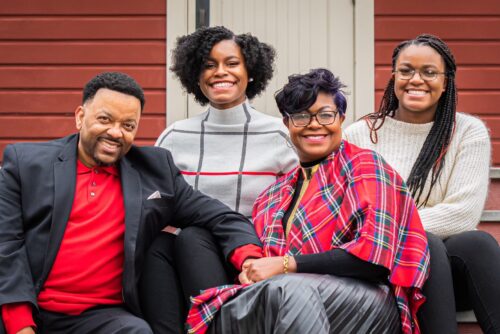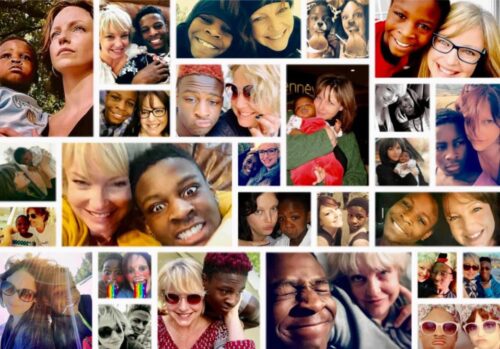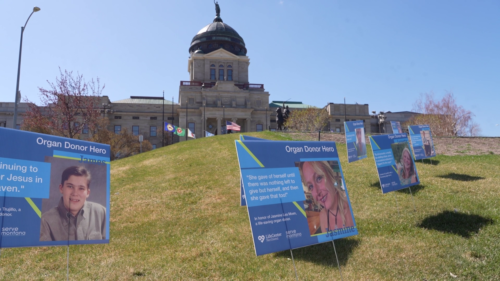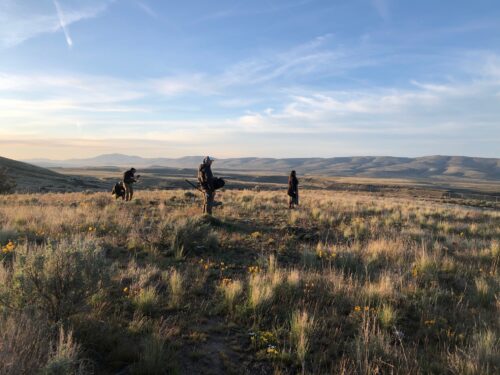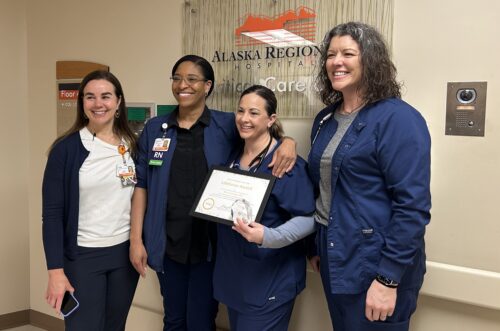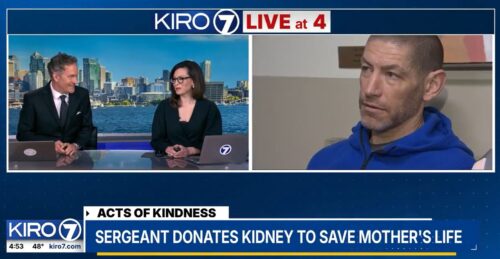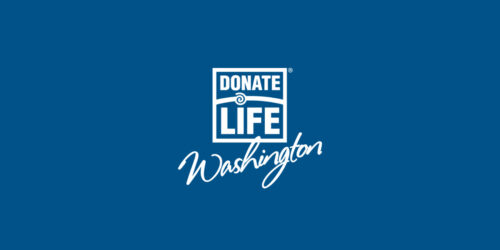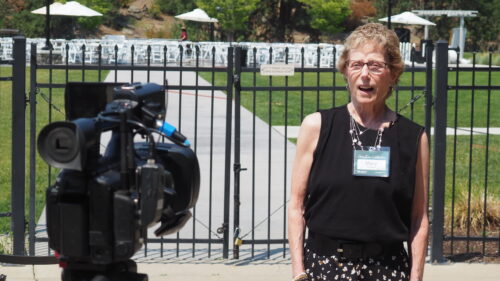
Organ and tissue donation is one of the greatest gifts a person can give. Knowing that their loved one has left a lasting legacy of hope and healing can provide comfort and solace to donor families. For transplant recipients and patients on the transplant waiting list, the gift of donation offers a second chance at life — a chance to move forward and fulfill that legacy left behind by their gracious donor.
Currently, there are more than 100,000 people in the United States on the transplant waiting list, including nearly 2,000 of our Northwest neighbors, and sadly, 13 of those people die every day. Talking to your loved ones about donation and knowing the facts are the most influential ways to spread the word about the beneficial impact of organ, eye and tissue donation.
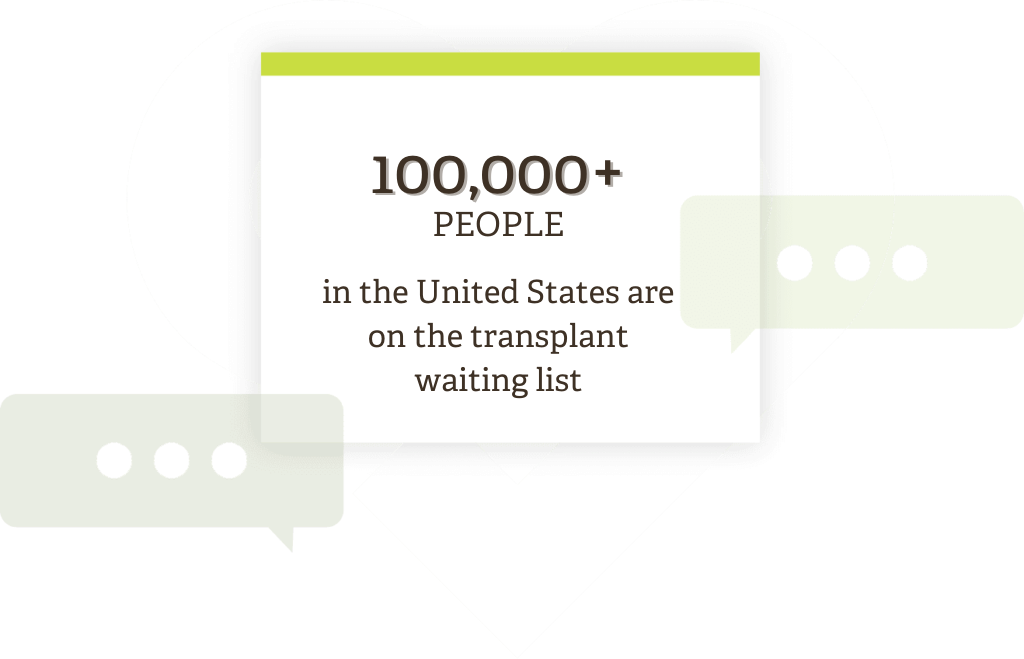
Learn the Facts. Bust the Myths.
Myth: I could not be a donor due to age or a medical condition
Fact: Anyone can register their choice to be a donor. No matter your age or health, some of your organs or tissues may be perfectly suitable for transplant. In order for a patient to be eligible for organ donation, they do need to be on ventilated support at the time of their death, and it must occur in a hospital. Upon referral by hospital staff, a recovery organization will evaluate each person individually to determine whether organ donation is a possibility. Tissue and cornea donation may still be an option if a death occurs outside of a hospital.
Myth: My organs could be sold on the black market
Fact: According to the Uniform Anatomical Gift Act of 1968, human organs, eyes, or tissue cannot be bought or sold in the U.S. Violators are subject to fines and imprisonment. All organ, eye, and tissue recovery agencies are strictly regulated by the Association of Organ Procurement Organizations.
Myth: Medical professionals won’t try to save my life
Fact: Hospital and emergency personnel are only concerned with saving your life. They do not have access to the confidential donor registry database to check for donor registration, nor do they make any determination as to whether someone is able to donate.
Myth: It’s against my religion
Fact: Most major religions support organ donation as a humanitarian act of giving. Transplantation is consistent with the life-preserving traditions of these faiths. You can talk to your faith leader and learn more about organ donation and religion.
Myth: My race or ethnicity doesn’t really matter for donation
Fact: The fact is that organ and tissue transplantation is not constrained by race or ethnicity; however, transplant success rates increase when organs are matched between people who share similar genetic composition. Currently, ethnic minorities are in desperate need of more organ, eye, and tissue donors as they represent 60% of the national organ transplant waiting list but makeup only 33% of actual donors. Read more on multicultural donors here.
Myth: Donation will cost my family a lot of money
Fact: There is no cost to the donor’s family or estate for organ, eye, and tissue donation. All costs related to donation are paid by the organ procurement organization or tissue recovery agency. Expenses related to saving the individual’s life and funeral expenses remain the responsibility of the donor’s family.
Myth: Even if I’m registered, my family can override my decision
Fact: Being a registered organ donor means you have given legal authorization for donation and transplantation. No one can override your registration and donation decision. We work closely and compassionately with donor families to support them through the donation process. It’s important to LifeCenter Northwest that grieving families say goodbye to their loved ones with an appreciation for their loved one’s gift. We recommend that all registered organ donors inform their family and loved ones of their decision so they know and understand your final wishes.
What does it mean when I say “YES” to organ, eye, and tissue donation and put the heart on my license or ID?
Saying “yes” to organ, eye and tissue donation on your driver’s license or ID provides your legal authorization to donate for life-saving or healing transplants. This is not related in any way to whole body research programs or bone marrow donation.
What if I want to register, make limitations on what I’m willing to donate, or have changed my mind about being a donor?
You can register your decision, set limitations, or remove yourself from the registry at any time. For assistance, or to request a registry brochure, contact info@lcnw.org or call 1-877-275-5269.
What is the state donor registry?
The state donor registry is a confidential database of personal donation decisions to be carried out at the time of death. The database in Montana and Washington is managed by LifeCenter Northwest. It is accessed only by donation professionals. The registry database only records an individual’s authorization for organ, eye or tissue donation. The registry database does not record an individual’s refusal to be a donor.
Questions?
Contact us at info@lcnw.org or 1-877-275-5269.


The heart on your license or ID indicates your authorization to be an organ, eye and tissue donor.
Read more facts about organ donation.
Donation and Transplantation: How does it work?
This video from the United Network for Organ Sharing gives a quick overview of how the donation process works.
Facts About Donation
Learn these facts to better understand organ, eye, and tissue donation.
Educational
Resources
Donation information for students and teachers in the classroom.
Advocate in Your Community
Resources to help you spread the word about donation in your community.
Living Donor or Research – who to contact
If you’re interested in living donation (kidney or liver) or donating your brain or whole body to research, view this document for contact information for those agencies.
The LifeCenter Northwest Blog
Keep up with news, events, and stories from donor families and transplant recipients.




